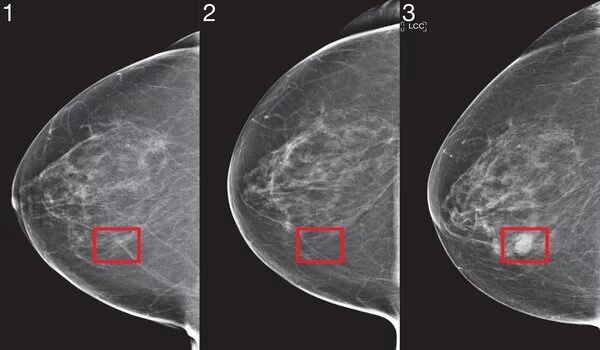AI (Artificial Intelligence) can be used to predict the effectiveness of breast cancer chemotherapy. Machine learning algorithms, such as decision trees, random forests, and neural networks, can analyze large amounts of medical data, including patient demographics, tumor characteristics, and treatment outcomes, to identify patterns and make predictions about how a patient may respond to chemotherapy.
Engineers at the University of Waterloo have developed artificial intelligence (AI) technology to predict whether chemotherapy before surgery would benefit women with breast cancer. The new AI algorithm, which is part of Dr. Alexander Wong’s open-source Cancer-Net initiative, could help unsuitable candidates avoid the serious side effects of chemotherapy and pave the way for better surgical outcomes for those who are.
“Determining the right treatment for a specific breast cancer patient is extremely difficult right now, and it is critical to avoid unnecessary side effects from using treatments that are unlikely to have real benefit for that patient,” said Wong, a systems design engineering professor.
“An AI system that can predict whether a patient is likely to respond well to a given treatment provides doctors with the tool they need to prescribe the best-personalized treatment for a patient in order to improve recovery and survival.”
An AI system that can predict whether a patient is likely to respond well to a given treatment provides doctors with the tool they need to prescribe the best-personalized treatment for a patient in order to improve recovery and survival.
Dr. Alexander Wong
The AI software was trained with images of breast cancer taken with a new magnetic image resonance modality invented by Wong and his team called synthetic correlated diffusion imaging in a project led by Amy Tai, a graduate student with the Vision and Image Processing (VIP) Lab (CDI).
With knowledge gleaned from CDI images of old breast cancer cases and information on their outcomes, the AI can predict if pre-operative chemotherapy treatment would benefit new patients based on their CDI images. Known as neoadjuvant chemotherapy, the pre-surgical treatment can shrink tumours to make surgery possible or easier and reduce the need for major surgery such as mastectomies.

“I’m optimistic about this technology because deep-learning AI has the potential to see and discover patterns that relate to whether a patient will benefit from a given treatment,” said Wong, the VIP Lab’s director, and the Canada Research Chair in Artificial Intelligence and Medical Imaging.
Cancer-Net BCa: Breast Cancer Pathologic Complete Response Prediction Using Volumetric Deep Radiomic Features from Synthetic Correlated Diffusion Imaging, a paper on the project, was recently presented at Med-NeurIPS as part of NeurIPS 2022, a major international AI conference.
The new AI algorithm and the complete dataset of CDI images of breast cancer have been made publicly available through the Cancer-Net initiative so other researchers can help advance the field.
These AI models can also take into account a variety of other factors, such as the type of chemotherapy, the patient’s age, and other medical conditions, to provide more accurate and personalized predictions. However, it is important to note that AI should be used as a tool to support clinical decision-making, rather than replace it. A healthcare provider should always consider the unique circumstances of each patient and take into account other factors that may not be captured by the AI model.















